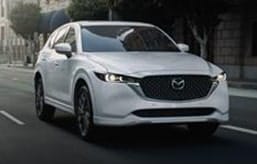- The Genesis GV70 and BMW X3 are two front-runners in our luxury-compact crossover rankings.
- Genesis has held the No. 1 spot, even winning an Edmunds Top Rated award.
- But the X3 is all-new for 2025. Can the updates take it ot the top of the pile?
2025 BMW X3 vs. 2025 Genesis GV70: Compact Luxury SUV Showdown
These luxe-utes aren't going anywhere, so which one's best? We find out
Market forces, tariffs, Mother Nature, Father Time, Zeus — it doesn't matter who does what or how, compact luxury SUVs like the 2025 BMW X3 and Genesis GV70 are here to stay. The X3 was BMW's second most popular car last year, and the GV70 was the top seller for Genesis.
Both cars also happened to get updates for 2025, though the X3's move to an all-new generation is bigger than the GV70's medium-sized refresh. So we did what anyone looking for a new luxury sport-ute would do and compared them back to back. Over the course of two weeks, we subjected four versions of these two cars to our instrumented testing and lived with them as daily drivers to suss out a winner.
First impressions mean more than ever
Right away, the BMW has a problem. It looks, well, the way it does. The polarizing sheetmetal will have some people guffawing at the idea of signing the dotted line long before they've even set foot inside — and it doesn't get much better for the BMW once you open the door.
Inside, you're greeted by two super crisp 12.3-inch displays (one for the instruments and another for the infotainment). The screens themselves are bright, with excellent contrast and resolution that make them easy to read in every lighting condition.
The software behind both is snappy and responsive; there isn't even any boot lag when you start the car up. Apple CarPlay and Android Auto are standard and work perfectly all of the time. (The maps and directions are even mirrored into the X3's instrument cluster.) iDrive does have one of the steepest learning curves in the industry, but you'll find what you need … eventually.
Look away from the screens, however, and you're bound to be less impressed. There is a shocking amount of hard plastic inside. The strip right below the screens, the center console, all of the lower dash, and the lower parts of the doors are all rock-hard, downright cheap-feeling plastics.
The controls for the outboard vents up front are fiddly touch pads mounted near the doorjamb, the vent controls are tiny rubberized knobs that are hard to find and a pain in the neck to figure out, and everything (headlights, interior lighting, climate controls, you name it) is done through the center screen.
The interior of the Genesis can be thought of as the BMW's polar opposite. You are bathed in excellent materials. Leather, metal, carbon fiber and more leather — it's all here. The design is more conventional and the ambient lighting isn't as impressive, but that makes little difference when there is a chasm between the two in overall interior quality and feel.
Small-item storage isn't as great as it is in the BMW — there are fewer cubbies and the door bins are much smaller in the Genesis. The center console is smaller, there's really only room for just one smartphone (room for two in the Bimmer), and the cupholders are shallower. You do get a place to put your sunglasses in the GV70; however, that's something in the X3.
But that's really the only area where the Genesis falls behind. The tech on offer is just as robust as it is in the BMW. There is a huge 27-inch display that sits under a single piece of glass that combines both the instruments and the infotainment display. It's just as bright and readable as the BMW's. The software lacks the distinct personality that iDrive has developed over the years, but it's just as effective and a touch easier to use.
There is a dedicated screen for the climate controls where the center console meets the dashboard. Buttons are just better, but the fact that the controls are always right there — and not two or more taps away — makes this a better compromise than the unavoidable menu-diving you have to do in the X3. Not only that, but there are also real knobs for the temperature control, which we seriously appreciate.
No silly fan-adjusting knobs, fewer tech hoops to jump through, and what feels like acres of great material choices prove that Genesis hasn't just studied the competition, it's out-luxed all of them. If we were judging this comparison on just what they're like to be inside of, the Genesis would have delivered a knockout before round two.
Road wars
On the road, the BMW flips the script (mostly). The X3 handles with an authenticity that's missing in the Genesis. It manages to stay flat and composed through corners without a compromised, overly stiff ride. Bumps and road imperfections that send shudders through the GV70's cabin are dealt with and dismissed with less fuss in the X3.
The Genesis rides just on the wrong side of firm. It jiggles you about in your seat over bits of road the BMW remains unbothered by, and its cabin allows a touch more road noise, leading to a less luxurious experience as you drive along.
In the Genesis, the steering is too heavy regardless of what mode you're in, but the heft adds no extra precision. It's like trying to twirl a broom that's buried in a vat of syrup. The BMW's is weighted just right and feels much more direct while you're at the helm. The brakes are easier to modulate in the X3, too — the GV70's brakes are fine, but they're not as immediately responsive and won't give you the same confidence.
And then there are the engines on offer. The X3 is available with either a 2.0-liter turbocharged four-cylinder (255 horsepower, 295 lb-ft) or a 3.0-liter turbo straight-six (393 hp, 428 lb-ft). Both engines are boosted by a 48-volt mild hybrid system that makes the stop-start function imperceptibly smooth, are mated to eight-speed automatics, and come with all-wheel drive as standard.
The base GV70 uses a turbocharged 2.5-liter four-cylinder (300 hp, 311 lb-ft), while the larger engine on offer is a twin-turbo 3.5-liter V6 (375 hp and 391 lb-ft). Both are backed by an eight-speed automatic transmission and standard all-wheel drive but lack the BMW's mild hybrid assistance.
Despite the huge power difference between the two four-cylinders, the base Genesis is only 0.1 second quicker to 60 mph than the BMW in our testing (6.0 seconds to 6.1 seconds). The delta between the bigger engines, however, is eye-opening. The extra oomph from the BMW's inline-six opens up a 1.2-second gap from 0 to 60 mph when compared to the V6 Genesis (4.4 seconds to 5.6 seconds).
The X3 M50 is sports car quick, and the four-cylinder has more than enough poke for the day-to-day grind. Both of the BMW's engine options rev more freely, don't sound like gravel in a blender, and their transmissions shift gears so much more neatly than those in the Genesis that you hardly notice them. The GV70's engines are surgy, and the transmissions swap cogs nowhere near as effortlessly.
But the kicker is that the BMW is also more fuel-efficient than the Genesis. According to the EPA, the four- and six-cylinder GV70s get 24 mpg and 20 mpg combined, respectively. The X3, on the other hand, gets 29 mpg combined from the four-cylinder and 27 mpg out of its straight-six. With some careful driving, the four-cylinder X3 can do 500 miles on a single tank. With gas prices creeping ever skyward, that's a big win for the BMW.
Value
After two rounds, we're tied one each, so our value section will have to pick a winner. The Genesis used to undercut the BMW's starting price, but now they're right on top of each other. Whether you get the most basic version or the big engine and all the fixin's, the GV70 and X3 are never more than a few thousand dollars apart from each other.
The base GV70 starts at $49,480, compared to $51,125 for the base X3. Juice them all the way up and both crest the $70,000 mark. The Genesis' $72,240 fully loaded price is still cheaper than the BMW's $73,575 asking price, but it's so close that the $1,335 difference is practically negligible.
That said, the Genesis comes with more goodies than the BMW does. Adaptive cruise control? Standard on the Genesis; not so on the BMW. Ventilated front seats on the four-cylinder? Optional on the Genesis; not so on the BMW. Plus, the optional high-end sound system in the Genesis is better than the optional hi-fi in the Bimmer.
It might not be obvious on the surface, but the Genesis is the better value. Not to mention the five-year/60,000-mile warranty that BMW can't match. If you're a keen driver and have more cash to burn, we can't fault you for opting for the B58 inline-six in the BMW. It's faster and a much more communicative, sharper machine from behind the wheel.
But the Genesis just does luxury better, and so it gets the nod. Since the V6 doesn't add much in the way of performance, we suggest opting for a loaded-up four-cylinder, bathing yourself in its higher-quality surroundings, and enjoying the peace of mind from that warranty.











 by
by  edited by
edited by